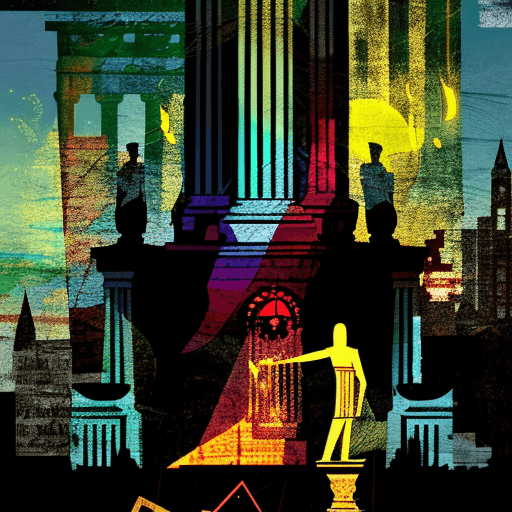One-line Summary:
Justice, Volume 1 is a thought-provoking exploration of the concept of justice, examining its philosophical underpinnings, historical context, and practical applications.
Introduction:
In Justice, Volume 1, renowned philosopher Michael J. Sandel delves into the multifaceted nature of justice, inviting readers on a captivating journey through the complexities of moral reasoning and ethical dilemmas. Through engaging anecdotes, insightful analysis, and thought-provoking questions, Sandel challenges readers to critically examine their own beliefs and assumptions about justice.
The Philosophical Foundations of Justice:
Sandel begins by exploring the philosophical foundations of justice, drawing upon the works of influential thinkers such as Aristotle, Immanuel Kant, and John Stuart Mill. He introduces readers to the three main theories of justice: utilitarianism, which focuses on maximizing overall happiness; libertarianism, which prioritizes individual freedom and property rights; and egalitarianism, which emphasizes equality and fairness.
Sandel delves into the complexities of these theories, highlighting their strengths and weaknesses. He poses challenging hypothetical scenarios, such as the famous “trolley problem,” to illustrate the moral dilemmas that arise when different principles of justice clash. Through these examples, Sandel encourages readers to critically evaluate their own moral intuitions and consider the underlying principles that guide their sense of justice.
Justice in Practice:
Moving beyond abstract theories, Sandel explores the practical applications of justice in various domains of society. He examines the ethical implications of market-driven economies, discussing the moral limits of markets and the potential dangers of commodifying certain goods and services. Sandel raises thought-provoking questions about the fairness of income inequality and the role of money in shaping societal values.
Furthermore, Sandel delves into the realm of affirmative action, exploring the tensions between meritocracy and the pursuit of diversity and social justice. He presents compelling arguments from both sides of the debate, challenging readers to grapple with the complexities of affirmative action and consider its implications for justice.
Sandel also delves into the realm of punishment and retribution, examining the moral justifications for various forms of punishment, including incarceration and the death penalty. He raises thought-provoking questions about the purpose of punishment and the potential for rehabilitation, urging readers to critically evaluate the effectiveness and ethical implications of different approaches to criminal justice.
Key Takeaways:
- Justice is a complex and multifaceted concept, with various theories and perspectives.
- Examining hypothetical scenarios can help uncover the underlying principles that guide our sense of justice.
- The practical applications of justice in areas such as markets, affirmative action, and punishment raise important ethical questions.
- Justice requires critical reflection and a willingness to engage in moral reasoning.
Memorable Quote:
“Justice is not only about the right way to distribute things. It is also about the right way to value things.” – Michael J. Sandel
In Justice, Volume 1, Michael J. Sandel offers readers a captivating exploration of justice, challenging conventional wisdom and inviting critical reflection. Through philosophical analysis and real-world examples, Sandel prompts readers to reevaluate their own beliefs about justice and consider the ethical implications of various principles. This thought-provoking book serves as a powerful reminder that justice is not a simple concept but rather a complex and multifaceted endeavor that requires ongoing engagement and moral reasoning.












